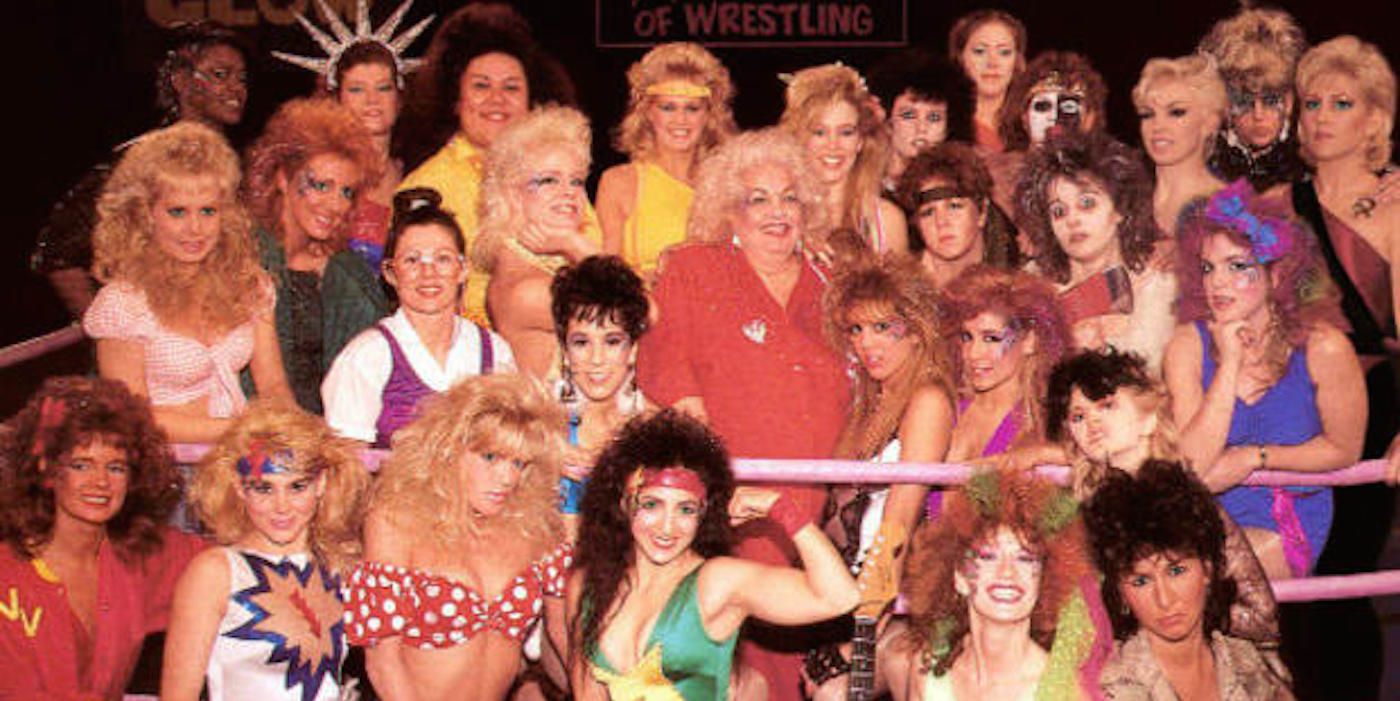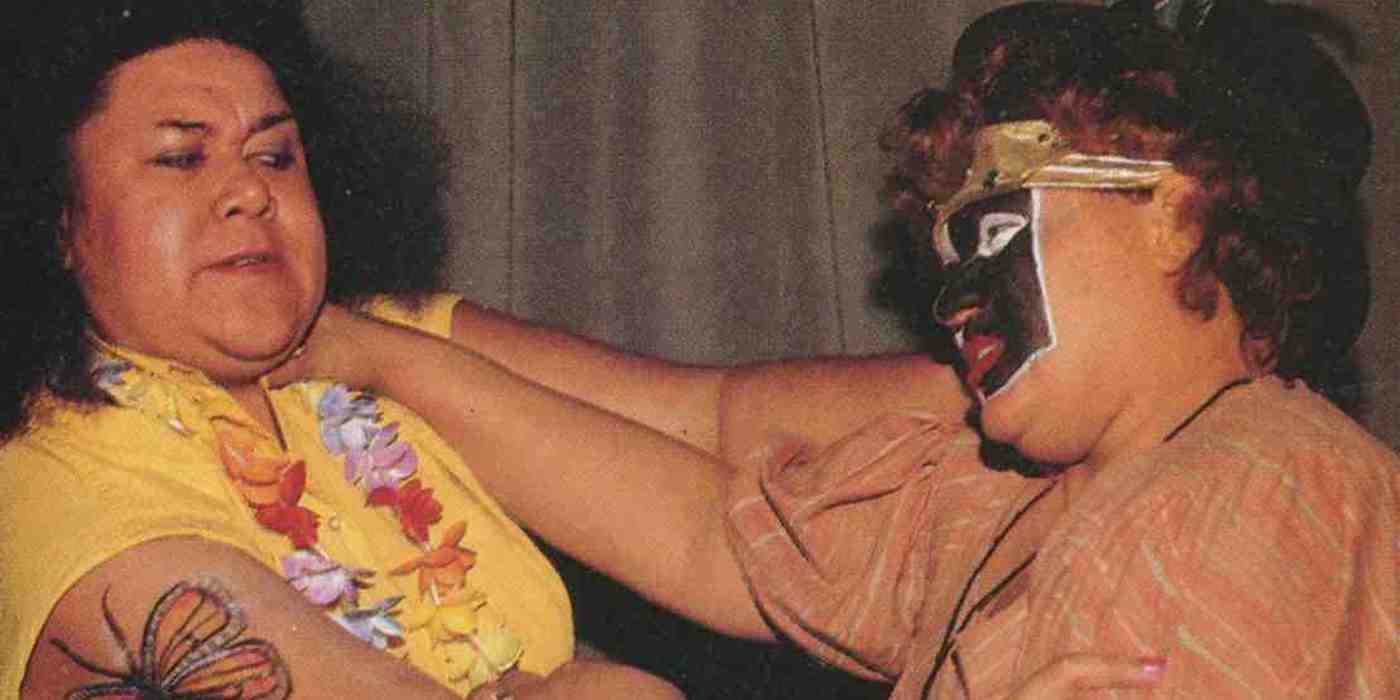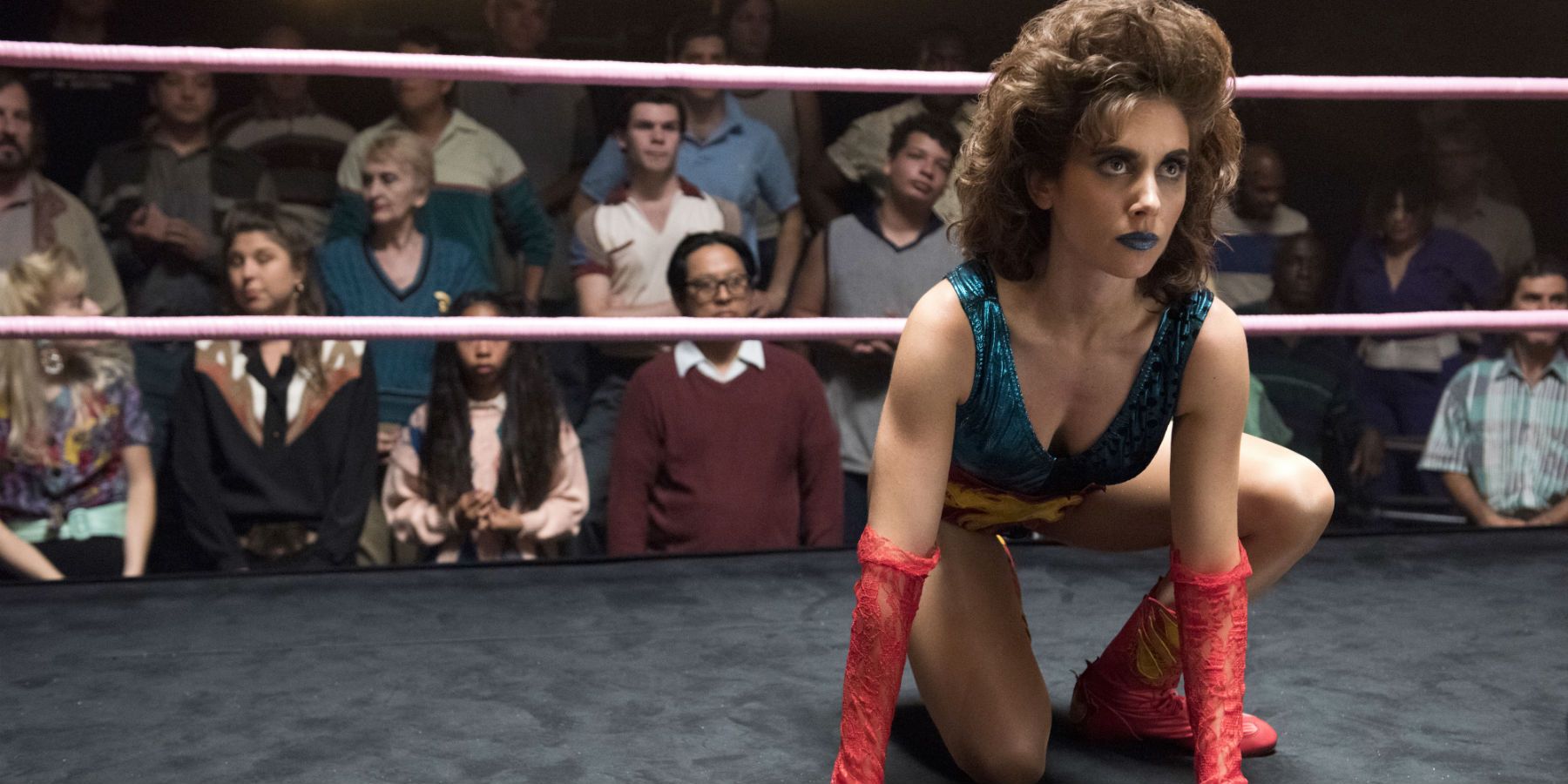GLOW, Netflix's new show from Orange is the New Black creator Jenji Kohan, stars Alison Brie as an aspiring actress whose search for a serious role lands her in an all-women's wrestling group. Where on Earth could a concept like that have come from? Well, from real life, of course.
GLOW, an acronym for Gorgeous Ladies of Wrestling, was a variety TV show that premiered in the late 1980s. The show assembled an eclectic group of women, each with their own unique wrestling persona. The story of GLOW has previously been told in the documentary film, GLOW: The Story of the Gorgeous Ladies of Wrestling (available to stream on Netflix), which highlights the zany characters that stepped into the ring during GLOW's run. There was Colonel Ninotcha (a cigar-smoking Russian stereotype), Godiva (a regal British bombshell), and Mt. Fiji (a 35o lb Samoan woman with enormous heart). Through wrestling matches, comedy sketches, and awkward '80s-style rap, these women interacted in a show that was one part sports competition and another part vaudevillian stage play.
Gorgeous Ladies of Wrestling was the brainchild of wrestling promoter and TV producer David McLane. The show was filmed in Las Vegas at the Riviera Hotel and Casino. Matt Cimber, a B-movie Hollywood director, was recruited to direct the show. The women on the show were trained by professional wrestlers - one of whom, Cynthia Peretti, would become Pepper, a recurring character on GLOW. GLOW first hit the airwaves in 1986, and became an international phenomenon shortly thereafter. Unfortunately, it was suddenly canceled around 1990. But while it lasted, the cast and crew put on a show that the world would not soon forget.
For the women themselves, GLOW represented an important period in all of their lives. The creators of the show were so intent on the women staying in character, they instructed the cast to refer to each other solely by their wrestling nicknames. For a time, the producers divided the women into a group of "bad girls" and a group of "good girls," with the goal of lending that dynamic to the actual show. The two groups were forbidden from spending time with members form the opposite camp, so much so that a fine was implemented for anyone who broke the rule. However, this didn't stop the women from breaking the rule. Though the show was created by men and criticized for catering to the male gaze (as well as for breeding a sexist environment where Cimber made a habit of verbally harassing the cast), many of the women attested that GLOW gave them all a sense of empowerment. A sense that was no doubt helped by the tight nit community the series provided. But when the show was canceled, the women were abruptly torn apart.
A rumor surrounding GLOW's sudden cancellation tells that Meshulam Riklis, the owner of the Riviera who also helped finance GLOW, was ordered by his then wife, Pia Zadora, to end the show. Allegedly, Zadora figured out Riklis had been fooling around with cast-members on the show. Whatever the reason, Riklis pulled his funding and the show met an untimely end at the height of its popularity. There have been rumblings of a GLOW return ever since the show finished in 1990. But aside from the documentary, the fictional TV show, and numerous live reunions, a full fledged GLOW revival has yet to come to fruition.
As special as GLOW was for the women involved, it also took a toll. Since the wrestling on the show was almost 100% real, many of the women suffered injuries that lasted long after they had left the ring. One of the castmembers, Dee Booher (a.k.a. Matilda the Hun), who was a wrestler prior to GLOW and continued after the show ended, sustained lifelong spinal injuries from her time on GLOW. Presently she has to use a wheelchair to get around most of the time. Many of the other women were merely actresses seeking work when they joined GLOW. After the show ended, it was hard for many to find acting jobs, since people in Hollywood had difficulty shaking their female-wrestler image. None of them managed to cultivate a full-time acting career, and a few succumbed to alcoholism, drugs, and even homelessness.
For better or worse, the cast of GLOW would reflect on the series as being the defining experience of their lives. The GLOW documentary ends with a touching get together between multiple cast-members, many years after the show had ended. Mt Fiji, or Emily Dole, was greeting with adoration from her wrestling colleagues. Among them was Matt Cimber, to whom Fiji admitted she always had a crush on. The confession was met with whoops and hollers from other women in the room. Hopefully the real-life Gorgeous Ladies of Wrestling will meet up again sometime soon to binge-watch the Netflix show based on their lives.
GLOW season 1 is available now on Netflix.



